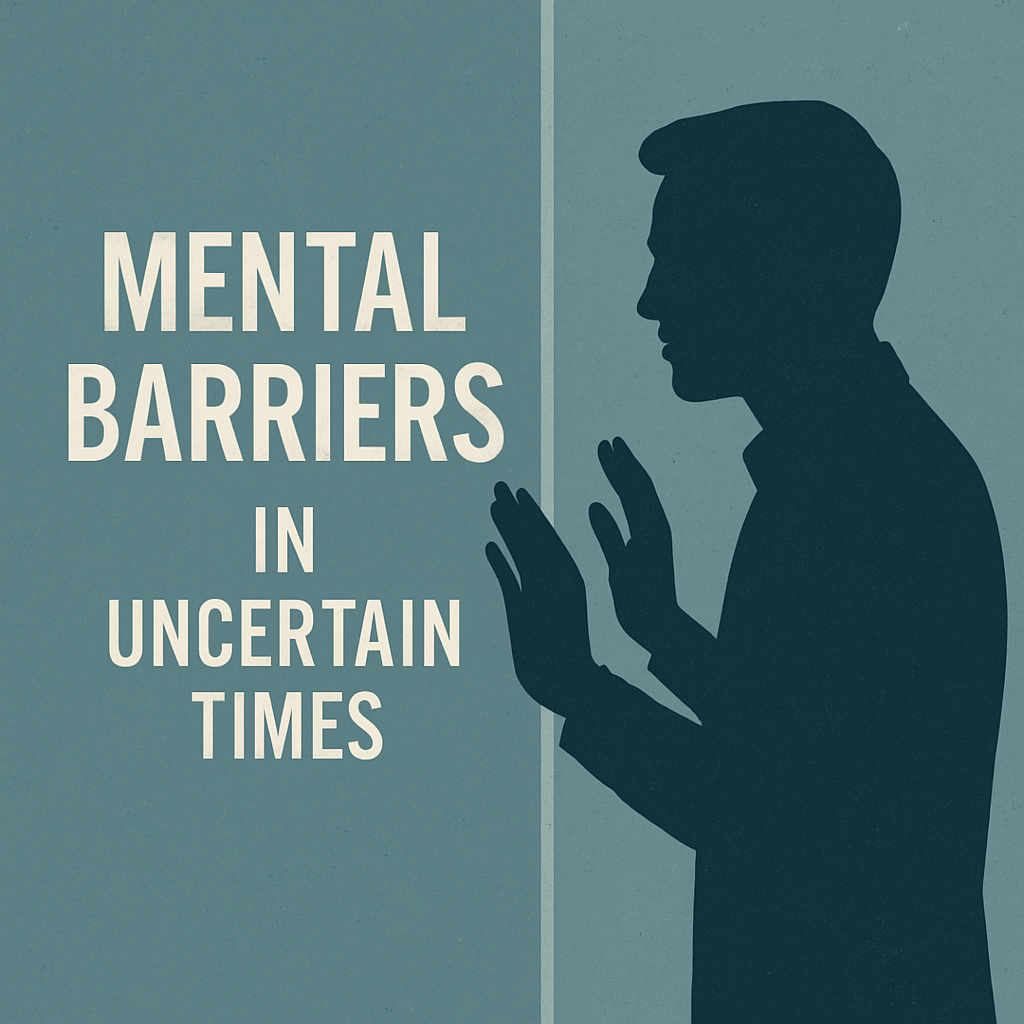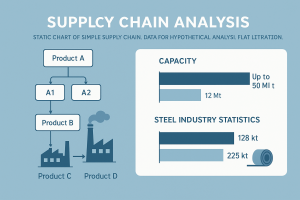🧠 Mental Barriers in Uncertain Conditions:
How Behavioral Competencies Help Us Move Forward
In the previous article, we discussed uncertainty and the skills needed to handle it, including the challenge-skill balance and core behavioral competencies.
Now, in this article, we’ll explore a subtle but powerful obstacle we all face in uncertain times: mental barriers.
Let’s start with a simple yet deep story you may have heard:
A researcher placed a transparent glass divider in an aquarium, separating a predator fish from smaller fish.
The predator repeatedly attacked the prey, but every time it hit the invisible wall.
Eventually, it gave up.
Then the researcher removed the glass.
But the predator didn’t even try again.
The barrier was no longer in the tank—it was now in the fish’s mind.
For me, this is a perfect symbol of the mental barriers we create, especially when facing uncertainty in projects or life.
Those moments when we ask ourselves:
“Can I really handle this?” or worse, “Is there even a solution?”
Sometimes what we perceive as a “crisis” or “unsolvable problem” is just the absence of a skill, not a real wall.
There’s no darkness—just a lack of light.
The world isn’t punishing you; it’s offering you a chance to grow.
It’s telling you: “This wall isn’t real. It’s mental. Learn what you need—and move on.”
💡 Real Examples of Mental Barriers in Uncertain Situations
-
In a delayed industrial project, a project manager who previously had tough legal disputes with a contractor avoids negotiating altogether—not because negotiation won’t help, but because their mind says it’s pointless.
-
Another manager, once burned by a quick decision, now delays action in a similar crisis—missing valuable opportunities while stuck in fear.
-
Sometimes entire teams fall into the trap:
“We’ve tried this before—it didn’t work!”
“That manager never cooperates.”
These are classic examples of mental barriers.
They may not be real, but as long as we believe in them, they hold us back—just like the glass in the aquarium.
🧩 How Can We Overcome Mental Barriers?
That’s where behavioral competencies come in. Let’s look at a few key ones—this time from a mental and emotional perspective:
-
Self-awareness & self-regulation:
Can you identify your emotional patterns? Ask yourself:
“Is my fear of failure real, or just based on past trauma?” -
Creativity & innovation:
New solutions often appear when we break out of old mental patterns.
One shift in perspective can dissolve a whole wall in your mind. -
Leadership:
A project manager’s job is not just fixing crises—it’s helping the team recognize and move past collective mental blocks.
Creating trust, encouraging open dialogue, and challenging limiting beliefs are all key.
A good leader builds belief:
“Every time you break a mental barrier, you grow. And that’s your real win.”
🌱 Final Thought
As we said in the second article:
The universe is intelligently designed.
What looks like an obstacle might actually be an invitation—
An invitation to grow, to see differently, to rise beyond an old internal limit.
So remember:
The wall you see may not be real.
And the solution you don’t see…
Might just be hiding behind a belief you’ve never challenged.
🔜 In the next article, we’ll explore practical techniques for identifying and breaking through mental barriers, especially when dealing with uncertainty—by developing the right behavioral competencies.




